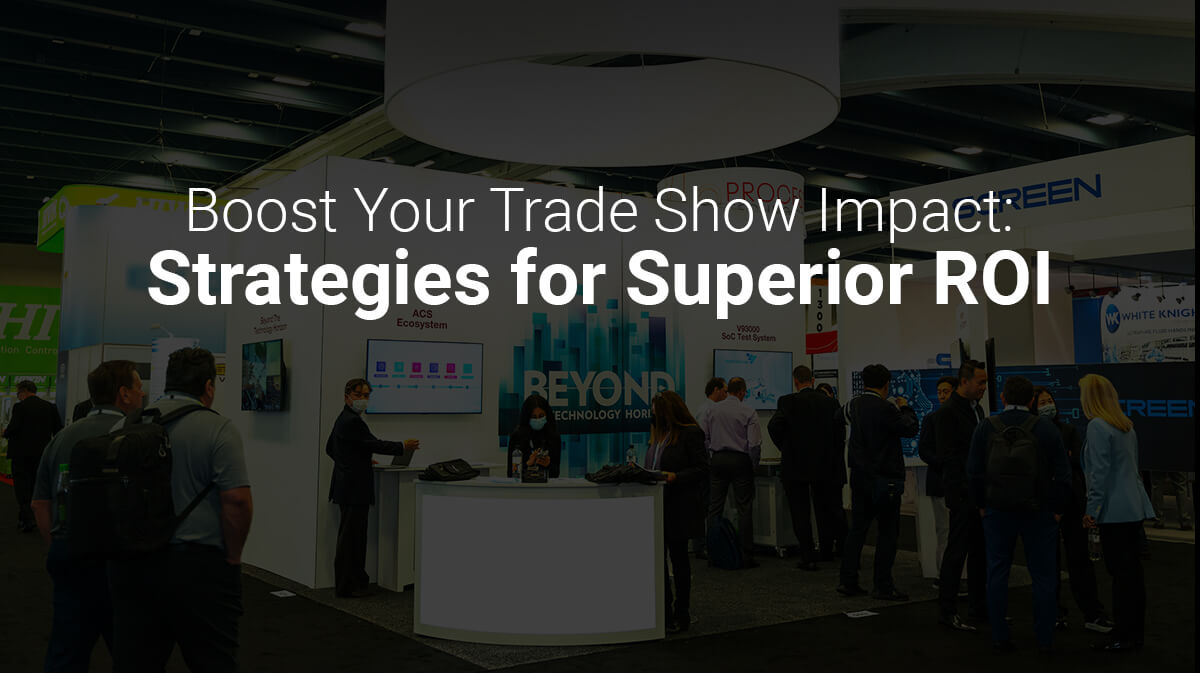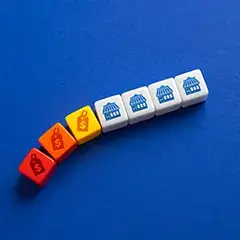
5 Pro Tips to Enhance the ROI of Your Trade Show Participation
Trade shows, just like advertising campaigns or sales efforts, are all about ROI. Generate more revenue from the event that your exhibit, staff and registration fees and you can view the event as a success; generate less, and it’s a learning experience.
While generating a positive return on investment from trade shows has a reputation as being a tough process, the truth is that there are all sorts of tips, tactics, and techniques you can use to optimize your exhibit for better results from any event.
From setting goals ahead of time to reducing your budget (yet, reducing your budget can often help you, at least from an ROI perspective), we’ve listed five highly effective tips below for you to put into action to get a better ROI from your next trade show.
Reach out to attendees before the event
Believe it or not, many trade show booth deals are made before the show even begins, not while it’s happening.
One of the most effective ways to generate a higher return on investment from your next trade show is to reach out to prospects, leads and existing customers before the event begins using social media, email or an old-fashioned phone call.
This way, you’ll go into the event with a list of appointments already confirmed, filling up your sales team’s schedule and letting you close new deals in the early house of the event without the usual pressure that can accompany a trade show.
Downsize your booth (and your budget)

When it comes to trade show exhibits, bigger isn’t always better. Sometimes, a smaller, less expensive booth can result in a better return on investment than a larger one by cutting your costs down and reducing your break-even point.
While a great booth can help you stand out from the crowd and attract attention, customers are ultimately motivated more by your product and service than by your exhibit. Think of your booth as the extra icing on the cake — it’s great as a compliment, but not as the only item.
By downsizing your booth, you can reduce your event budget and generate a profit without the same level of pressure as you’d face with a larger, more expensive display. This means you’ll have a much higher chance of achieving a positive return on investment from the event.
Create a fun, friendly sales competition
The more motivated your salespeople are going into the event, the more likely it is that they’ll be able to convert their energy and motivation into measurable results.
One of the most effective ways to motivate your sales team and generate a better ROI from the event is to inspire some friendly competition by setting sales goals. Often, a small prize or bonus can be the perfect incentive to help your sales representatives try their hardest.
It’s always important to remember that trade shows can be tiring, challenging experiences for staff. Provide an extra level of motivation and you’ll find your sales team much more ready to push ahead to help you achieve a positive return on investment.
Focus on upgrading existing client or customer relationships

Your most valuable sales prospects aren’t strangers — they’re the people and companies that have already bought from you before.
Because of this, you’ll often get a better return on investment from events by focusing on your existing relationships than by pursuing new ones. “Upgrading” and expanding an existing client or customer relationship can, most of the time, be a great way to generate more revenue.
If your current clients or customers are attending the same trade show that you’re exhibiting at, reach out to them before the event and set aside as much time as possible to showcase your latest products, services and offers. You could be pleasantly surprised by the results.
Master the art of the post-show follow-up
While trade show displays can be great tools for closing new deals and bringing in new business, most deals will be made after the show, not during it. This makes it especially important that you have a reliable post-event strategy mastered before the event itself.
During the show, it’s often best to focus on acquiring prospects and leads, rather than aiming to close deals on the spot. This way, you can set goals for sales after the event has ended and put your resources to work converting leads and prospects into deals.
It can often take months to realize your total ROI from a trade show — in some cases, years or decades. Because of this, it’s important that you recalculate your revenue from an event over the long term to make sure you’re fully aware of the total return on your investment.
